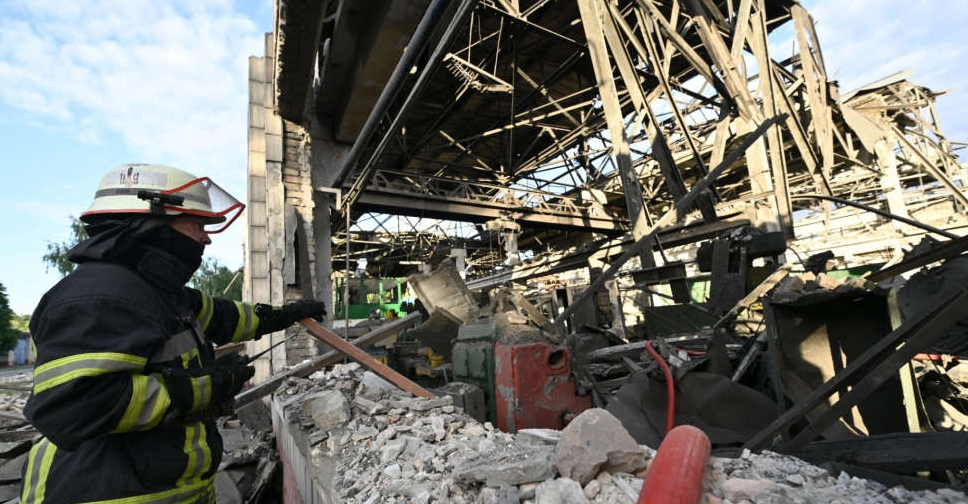
Russia struck Kyiv with missiles for the first time in more than a month, while President Vladimir Putin warned he would strike new targets in the country if western nations supplied Ukraine with longer-range missiles.
In Sievierodonetsk, the main battlefield in the east where Russia has concentrated its forces recently, Ukraine officials said a counter-attack had retaken half of the city.
Ukrainian President Volodymyr Zelenskiy said on Sunday that he travelled to Lysychansk, south from Sievierodonetsk, and Soledar. The trips were rare outings for him outside the capital since the start of the Russian invasion on February 24 and could be the closest to the frontline yet.
"What you all deserve is victory - that is the most important thing. But not at any cost," Zelenskiy, wearing his trademark khaki T-shirt, told Ukrainian troops in a video released on Sunday night.
Lysychansk and Sievierodonetsk are in the Luhansk region and Soledar is in the Donetsk region. Both regions make up the Donbas, Ukraine's industrial heartland, which Russia claims it is on a mission to "liberate".
In the Kyiv attack, one person was hospitalised though there were no immediate reports of deaths. Dark smoke could be seen from many miles away after Russia's attack on two outlying districts on Sunday.
Ukraine said the strike hit a rail car repair works, while Moscow said it had destroyed tanks sent by Eastern European countries to Ukraine.
Oleksandr Kamyshin, head of the Ukrainian railway, confirmed four missiles had smashed into the Darnytsia rail car repair facility in eastern Kyiv, but said there was no military hardware at the site.
The strike was a sudden reminder of war in Kyiv where normal life has largely returned since Russian forces were driven from its outskirts in March.
The "missile strikes at Kyiv have only one goal - kill as many as possible", Ukrainian presidential adviser Mykhailo Podolyak said on Twitter.
Ukraine said Russia had carried out the Kyiv strike using long-range air-launched missiles fired from heavy bombers as far away as the Caspian Sea.
Ukraine's nuclear power operator said a Russian cruise missile had flown "critically low" over the country's second largest nuclear power plant.

 UK inquiry finds 'chilling' cover-up of infected blood scandal
UK inquiry finds 'chilling' cover-up of infected blood scandal
 Iranian President Raisi killed in helicopter accident, state media says
Iranian President Raisi killed in helicopter accident, state media says
 ICC prosecutor seeks arrest warrants for Israeli, Hamas leaders
ICC prosecutor seeks arrest warrants for Israeli, Hamas leaders
 Assange given permission to appeal against US extradition
Assange given permission to appeal against US extradition
 Israel intends to broaden Rafah sweep, Defence Minister tells US
Israel intends to broaden Rafah sweep, Defence Minister tells US




